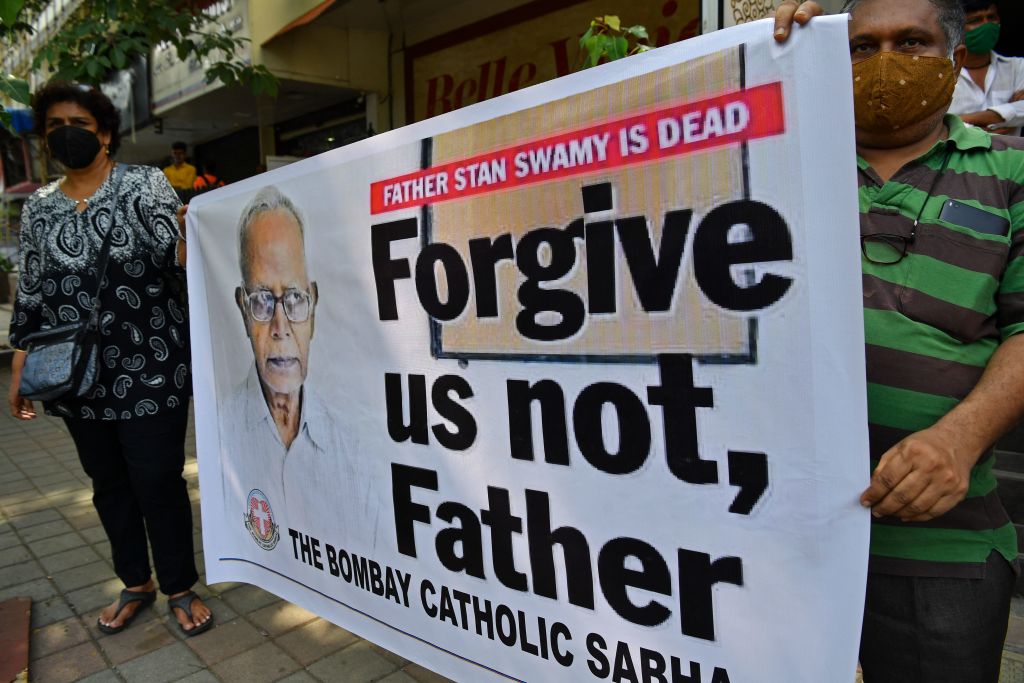- Sunday, November 24, 2024

By: Shubham Ghosh
A UNITED Nations human rights expert has said that she was devastated to hear about the death of Indian priest-activist Stan Swamy in judicial custody, saying there is “no reason” for a human rights defender to be denied his rights and his death will “remain a stain” on the South Asian democracy’s human rights record forever.
Swamy, 84, died at a hospital in Mumbai on July 5 and his death caused a massive outrage in India and abroad. He was arrested in October last year under the Unlawful Activities (Prevention) Act in connection with the Elgar Parishad-Maoist links case.
ALSO READ: United Nations says it is ‘disturbed by the death’ of Stan Swamy
In a statement issued on Thursday (15), UN special rapporteur Mary Lawlor said Swamy’s case should remind all states that human rights defenders and all those who have been detained without sufficient legal basis, should be released. She said the death of Swamy, “a renowned human rights and social justice advocate for over four decades, will forever remain a stain on India’s human rights record.”
Stan Swamy was detained under ‘due process of law’: India government
“There is no excuse, ever, for a human rights defender to be smeared as a terrorist, and no reason they should ever die the way Father Swamy died, accused and detained, and denied his rights,” she said.
India liberals mourn activist Stan Swamy death: ‘Murder by the State’
The Indian government has rejected international criticism over handling of Swamy’s case. The country’s ministry of external affairs said the concerned authorities acted against violations of law and did not restrain the legitimate exercise of rights. It said India remains committed to the promotion and protection of the human rights of all its citizens and the country’s democratic polity is complemented by a judiciary which is independent and a range of national and state-level human rights commissions.
“Swamy was arrested and detained by the National Investigation Agency following due process under the law. Because of the specific nature of charges against him, his bail applications were rejected by the courts. Authorities in India act against violations of law and not against legitimate exercise of rights. All such actions are strictly in accordance with the law,” the ministry had said in a statement in New Delhi soon after Swamy’s death.
It said Swamy was receiving all possible medical attention at a private hospital where he was admitted since May 28 and his health and medical treatment were being closely monitored by the courts. He died on July 5 following medical complications.
‘Why wasn’t Swamy released?’
Lawlor said Swamy was jailed last October “on fabricated terrorism charges” and had been subjected to harassment and repeated interrogations. “I was devastated to hear that Father Stan, a Jesuit priest who had dedicated much of his life to defending the rights of indigenous peoples and the Adivasi minority, died in custody on July 5, despite many requests for his release as his health deteriorated in prison,” she said. She added that in early November last year, UN experts joined her in raising Swamy’s case with the Indian authorities, reminding them of their international human rights obligations. “I now ask again why he wasn’t released, and why he had to die in custody?” she said.